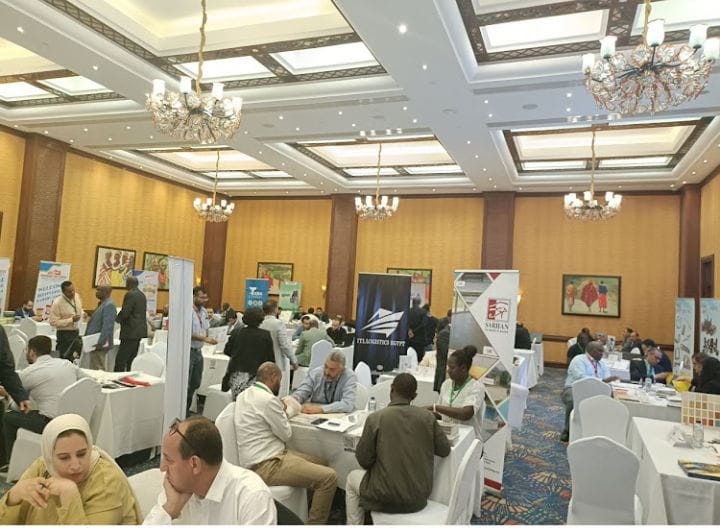Nairobi has played host to the launch of the 2nd Round of the Egypt Business Bridge Forum, with Kenya in collaboration with USAID Trade project in a bid to support the Egyptian exports for the Export Council for Building Refractory and Metallurgy Industries and the Chemical and Fertilizers Export Council.
The CIB Bank which is the largest private sector Bank in Egypt with more than 300 correspondents over the world, was responsible for holding the event that brought together all its clients who are both stakeholders and entrepreneurs in the trade industry.
The event included different business discussion sessions between entrepreneurs and all potential customers, and the exhibition set-up had a variety of products that were free to sample by interactive buyers.
Speaking during the session, the Vice President (VP) of the CIB Bank African Desk, Ahmad Ahmud, said the forum along with many other forums the Bank is organizing with different export councils in Egypt focuses on trade finance between Egypt and Kenya.
“As long as we are part of COMESA, it gives CIB Bank the privilege to exchange products between Kenya and Egypt,” added Ahmud.
He also noted that Egypt is the second largest importer of Kenyan tea, and the two countries have a trade volume of between US$600 to US$700 per year.
CIB Bank being the only bank with a branch both in Kenya and Egypt, the VP revealed that they plan on taking advantage and capitalizing on the event’s discussions in terms of supporting Egyptian importers including coming- up with and inviting their clients and local clients.
Ahmud affirmed that Kenya can rely on the Bank to give credit terms to the local Kenyan companies, insisting that they should not worry of the payment as it will be secured through the Industrial Control System (ICS).
He termed this as value addition and sees it as giving an instrument of trade to finance itself.
The Assistant VP CIB Kenyan desk Sulman Lashar, stressed that all the instruments are to facilitate trade, thus, the event provides the opportunity for different suppliers and buyers to build trust and relationships hence increasing trade between the two countries.
By Billy Sabari and Kelvin Waribu




